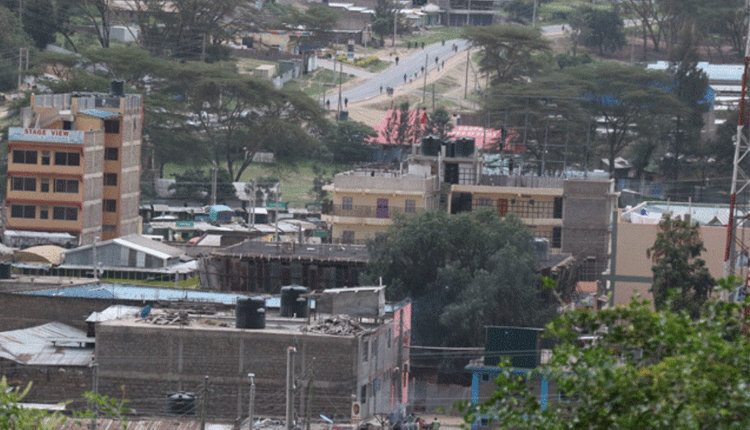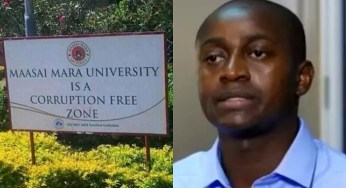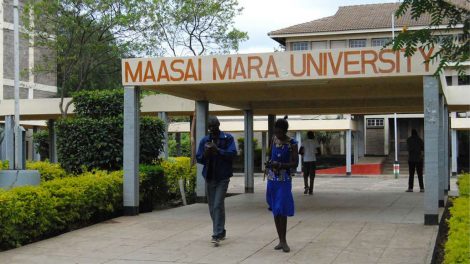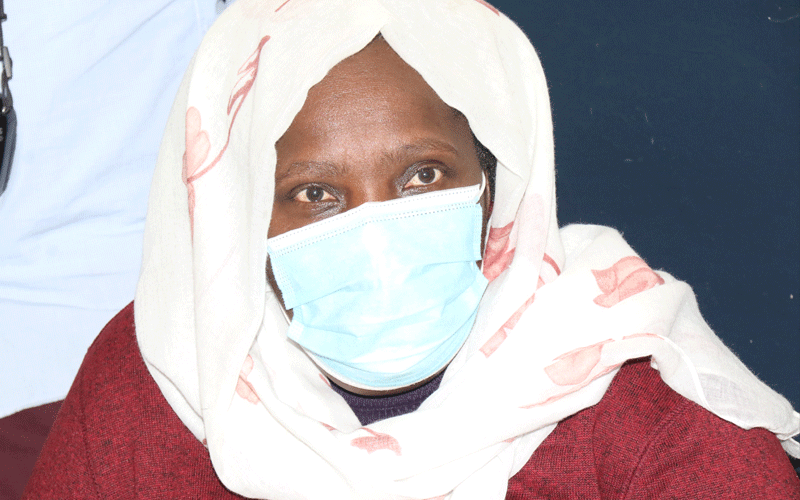Poor planning exerts pressure on Narok’s resources

Land prices in Narok township have, over the last two decades, been rising despite the slowdown in the country’s economy as a result of high taxes and recently Covid-19.
Old buildings, once a common feature, are fast being replaced by modern high-rise,s while residential houses similar to the ones in Kenya’s big cities are now common.
The establishment of Maasai Mara University, Narok Teachers College, Maasai Mara Technical College, Toyota Kenya Service plant, John Deere Tractor showroom, Oltalet Mall, hotels, financial institutions, hospitals, among other developments in Narok within less than 10 years, has seen a steep growth of the property market.
In the last decade more individuals and companies have scrambled for space to set up businesses in an area that was a 24-hour economy before the coronavirus epidemic disruption.
Narok-Bomet road, which links Nairobi with South Rift, Nyanza and Western Kenya has continued to boost property prices.
All major roads are either tarmacked or upgraded, making access to the town and properties easier, including the upgrading to bitumen of the Narok-Sekenani Gate road that links the town with Maasai Mara Game Reserve.
However, the rush to purchase land along this road is threatening the flora and fauna of the world famous game reserve as owners continue to fence and change land uses.
Most pieces that go for between Sh200,000 and Sh650,000, were group ranches and wildlife habitats, breeding grounds and dispersal areas.
According to a reliable source at the local Land Registry, more than 1,000 land searches and other transactions are carried out every day, illustrating the thirst for land for settlement and commercial purposes.
Before the rush, many considered Narok as insecure, as a result of three successive land clashes fuelled by politicians who wanted people they called outsiders to leave.
During the tourism peak season in Masai Mara Game Reserve and wheat harvesting-which coincide-, according to financial experts, more than Sh100 million change hands every day.
Ochiengo Onduso of Ochiengo Oduso and Company Advocates says his law firm executes an average of 100 land conveyances every day, adding that even with the current Covid-19, the number has not dropped.
“It dropped when the local Land Registry office was briefly closed last year. Would-be land buyers and sellers have now trooped back for searches. Apart from other litigation issues, conveyancing contributes about 70 per cent of our income,” he says.
Perennial floods
Though it was initially not planned, the town has rapidly grown albeit haphazardly with most modern buildings and services shifting to areas along major roads and highways.
The decision to move them out of the main town was also informed by perennial floods, which destroy millions of shillings in trade and investment annually despite efforts to expand waterways.
The establishment of a university in 2008 saw investment in rental property soar as students, teaching staff and workers scrambled for available accommodation, which was inadequate and substandard.
Single units of rental houses which were priced at between Sh3,000 and Sh3,500 a month 10 years ago now cost between Sh10,000 and Sh13,000.
Most landlords are building bed sitters, units at cost Sh6,000 and Sh7,500 as universities and colleges continue to admit more learners.
With access to bank loans, investments in commercial and rental properties have grown at breath-taking levels as pieces of plots measuring 100 by100 in areas outside the town going for between Sh7 million to Sh13 million.
The high cost of rentals has pushed people outside the town radius to places such as Ololulung’a, Mulot and Suswa, which are also competing with Narok town in development.
Henry Nyaema of Boma Property Valuers says despite the pandemic, land value has not depreciated, adding that when it was first reported in the country and later closures of Land Registry, there was a break in land and property searches.
Dramatic rise
“We took a small break when Covid-19 was first reported. But later things normalised and we are back to business,” he says.
When the nationwide curfew is lifted and other economic activities fully resume, he adds, value of land will rise.
“Tourism in Masai Mara Game Reserve has resumed. Before the end of the year, demand for land will dramatically rise,” he says, adding that the resumption of the 24-hour economy will now aid the quest for investments in hospitality sector.
But the rush and hitherto success of Narok as a rapid growing investment hub has pitfalls which if not fixed, will stand in the way of it becoming a city its leaders envision.
Though the water supply, built before independence and which was to serve a population of less than ten thousand, has been expanded, access to clean and affordable water is still a challenge.
So is access to electricity, which is always plagued by unexplained outages in a town of a population of more than 90,000, according to the 2019 national census, which has only one public toilet.
Residents complain that despite the high circulation of money and high land and property rates charged by the county government, access to vital services are still not within easy reach.
“People, especially traders and land owners pay huge sums of money to the county government in cess, rates, tariffs and fees, but they still struggle to get vital services such as clean water.
The town is crowded because even service lanes were grabbed,” says Jackson Kamoe, a former Kenya National Chamber of Commerce and Industry chairman.
He says during fire outbreaks, firefighters find it difficult to access sites, leading to losses of property and sometimes lives.
Stanley Koriata, the head of the municipality, says they are drafting a new development plan, adding that there were plans to relocate the town in 2014 to Lemanet area, but it was put on hold because of opposition, especially from politicians and logistical challenges.
“We are forced to plan with the space available. When we wanted to relocate the town, it was opposed, which left the county leadership in an awkward position,” he says.















